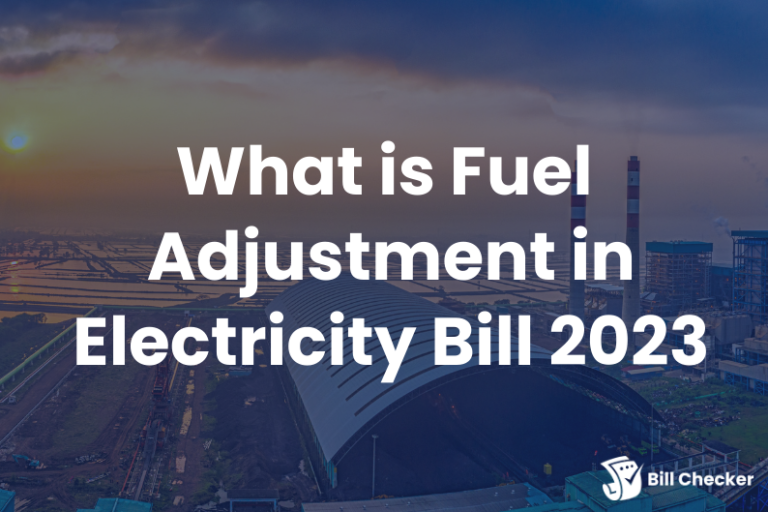10 Incredible Tips to Reduce Your Electricity Bill in Pakistan
Electricity bills can take up a significant portion of your monthly expenses, especially during peak seasons. However, reducing your energy consumption doesn’t have to mean sacrificing comfort or convenience. With a few simple adjustments, you can significantly lower your electricity bills while still maintaining your desired lifestyle.
In this article, we will discuss 10 incredible tips to help you reduce your electricity bills and cut down on energy consumption. By implementing these tips, you can not only save money but also contribute to a greener, more sustainable future.
10 Tips to Reduce Your Electricity Bill and Energy Consumption
Here are ten tips to reduce your electricity bill and energy consumption:
1. Conduct an Energy Audit of Your Home to Identify Areas of Improvement:
One of the most effective ways to reduce your electricity bills and energy consumption is by conducting an energy audit of your home. This audit will help you identify areas where you may be wasting energy and can provide insights on how to optimize your energy usage.
During an energy audit, a professional will examine your home’s insulation, heating and cooling systems, appliances, and lighting to identify areas of improvement. They may also use specialized equipment such as infrared cameras and blower doors to detect air leaks and measure the efficiency of your HVAC system.
However, you can also conduct a simple energy audit on your own. Start by walking around your home and taking note of areas where you may be wasting energy, such as windows that let in drafts, appliances that are left plugged in but not in use, or inefficient light bulbs.
Once you have identified these areas, you can take steps to address them, potentially resulting in lower KE duplicate bills. For instance, you may need to seal air leaks, replace old appliances with more energy-efficient models, or switch to LED light bulbs.
Conducting an energy audit may require an initial investment, but it can lead to significant savings in the long run. By identifying and addressing energy waste, you can reduce your electricity bills and help create a more sustainable future for generations to come.
2. Switching to Energy-Efficient Appliances and Devices:
A great way to reduce your energy consumption and lower your electricity bills is by upgrading to energy-efficient appliances and devices. By using appliances that require less energy, you can save a significant amount of money on your energy bills over time.
When purchasing appliances, look for products with the ENERGY STAR label. These products have been certified by the Environmental Protection Agency as meeting strict energy efficiency guidelines, which means they use less energy than non-certified products.
In addition to appliances, you can also switch to energy-efficient devices such as light bulbs and power strips. LED light bulbs use up to 75% less energy than traditional incandescent bulbs and can last up to 25 times longer. Power strips can also help reduce energy waste by allowing you to easily turn off multiple devices at once when not in use.
By making the switch to energy-efficient appliances and devices, you can not only save money on your energy bills but also reduce your carbon footprint and contribute to a more sustainable future.
3. Unplug Appliances and Devices When Not in Use to Avoid Phantom Loads:
Did you know that appliances and devices continue to consume energy even when they’re turned off? This phenomenon, known as phantom load or standby power, can account for up to 10% of your home’s energy consumption.
To avoid phantom loads, unplug appliances and devices when they’re not in use. This includes items such as televisions, gaming consoles, chargers, and even kitchen appliances like toasters and coffee makers.
Alternatively, you can use power strips with an on/off switch to easily turn off multiple devices at once. This is particularly helpful for entertainment centers or home office setups where multiple devices are connected.
While the energy consumption from phantom loads may seem small, it can add up over time and result in higher electricity bills. By making a conscious effort to unplug appliances and devices when not in use, you can reduce your energy consumption and save money on your electricity bills.
4. Install Power Strips to Make It Easier to Turn Off Multiple Devices at Once:
Power strips with an on/off switch can make it easier to turn off multiple devices at once when not in use. This is particularly helpful for entertainment centers or home office setups where multiple devices are connected.
By using power strips, you can avoid phantom loads and reduce energy waste. Simply switch off the power strip when you’re done using the devices connected to it, and you can save energy and money on your electricity bills.
5. Switch to LED or CFL Light Bulbs to Reduce Energy Consumption:
One of the easiest ways to reduce your energy consumption and lower your electricity bills is by switching to LED or CFL light bulbs. These bulbs use significantly less energy than traditional incandescent bulbs, and they can last up to 25 times longer.
While LED bulbs may be more expensive upfront, they can save you a significant amount of money over time. In fact, by replacing just five of your most frequently used light fixtures with ENERGY STAR-certified LED bulbs, you can save up to $75 a year on energy costs.
Additionally, LED bulbs don’t contain hazardous materials like mercury, which can be found in CFL bulbs. This makes LED bulbs a safer and more environmentally friendly option.
By making the switch to LED or CFL light bulbs, you can reduce your energy consumption, save money on your electricity bills, and contribute to a more sustainable future.
6. Set a Programmable Thermostat to Optimize Heating and Cooling:
Heating and cooling your home can account for a significant portion of your energy consumption and electricity bills. However, by setting a programmable thermostat, you can optimize your HVAC system and save money on energy costs.
A programmable thermostat allows you to set different temperature settings for different times of the day or week. For example, you can set the temperature lower at night when you’re asleep or during the day when you’re not home. This can reduce the amount of energy your HVAC system uses to maintain a comfortable temperature and lower your electricity bills.
Additionally, some smart thermostats can learn your habits and adjust the temperature accordingly. This means that your HVAC system can automatically adjust the temperature based on your schedule and preferences, without any manual input required.
7. Use Energy-Efficient Water Heaters and Set the Temperature to 120°F:
Water heating is another major contributor to energy consumption and electricity bills in most households, including those in Karachi where KWSB Duplicate Bills can add up. By switching to an energy-efficient water heater and setting the temperature to 120°F (49°C), you can save energy and money on your bills.
Energy-efficient water heaters, such as heat pumps or tankless water heaters, can significantly reduce the amount of energy used to heat water compared to traditional storage tank water heaters. These models use advanced technology to heat water on demand, which means they don’t have to constantly maintain a large tank of hot water.
8. Avoid Using Air Conditioning During Peak Hours and Instead Use Ceiling Fans or Natural Ventilation:
Air conditioning is one of the biggest energy consumers in most households, especially during the hot summer months. However, you can reduce your energy consumption and lower your electricity bills by avoiding using air conditioning during peak hours and instead using ceiling fans or natural ventilation.
Peak hours are typically during the hottest part of the day, usually between noon and 6 p.m. During these hours, energy demand is high, which means that electricity prices are also higher. By avoiding using air conditioning during these hours, you can reduce your energy consumption and save money on your bills.
Instead of relying on air conditioning, you can use ceiling fans or natural ventilation to keep your home cool. Ceiling fans use much less energy than air conditioning and can circulate the air in your home, creating a cooling effect. Natural ventilation, such as opening windows and using cross-breezes, can also help cool your home without using any electricity.
By avoiding using air conditioning during peak hours and using ceiling fans or natural ventilation instead, you can significantly reduce your energy consumption and lower your electricity bills, while still maintaining a comfortable temperature in your home.
9. Regularly Maintain Your Appliances and HVAC System to Ensure They Are Running Efficiently:
Regular maintenance of your appliances and HVAC (heating, ventilation, and air conditioning) system is crucial to ensuring they are running efficiently and using the minimum amount of energy possible. When appliances and HVAC systems are not properly maintained, they can use more energy than necessary and result in higher electricity bills, such as FESCO online bills for those living in Faisalabad.
Simple maintenance tasks, such as cleaning or replacing air filters, can help improve the efficiency of your HVAC system and reduce energy consumption. Similarly, cleaning the coils of your refrigerator or freezer can help them run more efficiently and use less energy.
Regular maintenance can also help detect and fix any issues with your appliances or HVAC system before they become major problems. This can prevent costly repairs or replacements in the future and help your appliances and HVAC system last longer.
10. Upgrade Your Home Insulation to Prevent Air Leaks and Reduce Heating and Cooling Loss:
Upgrading your home insulation is one of the most effective ways to prevent air leaks and reduce heating and cooling loss, which can result in significant energy savings and lower electricity bills. Insulation acts as a barrier that helps to keep warm air inside during winter and cool air during summer, which means your heating and cooling systems will have to work less to maintain the desired temperature.
The most common areas in a home where air leaks occur are around windows and doors, in the attic, and through the walls. By upgrading your insulation in these areas, you can significantly reduce the amount of energy required to heat or cool your home. This can result in significant energy savings and lower electricity bills.
There are several different types of insulation materials available, including fiberglass, cellulose, and spray foam. Each type has its own unique advantages and disadvantages, so it’s important to do your research and choose the right type of insulation for your home.
4 Ways to Improve Electrical Appliance Efficiency
1. Keep Your Appliances Clean and Dust-Free to Ensure Efficient Functioning:
Keeping your electrical appliances clean and dust-free is essential to ensure efficient functioning. Dust, dirt, and other debris can accumulate on the surface of your appliances, which can reduce their efficiency and increase energy consumption. Regular cleaning of your appliances can help to keep them running smoothly and extend their lifespan.
For example, if your refrigerator coils are covered in dust and dirt, the compressor will have to work harder to maintain the desired temperature, which can increase energy consumption and lead to higher electricity bills. By simply cleaning the coils and other components of your refrigerator, you can improve its efficiency and reduce energy consumption.
Similarly, dust and dirt can accumulate on the blades of your ceiling fans, reducing their efficiency and increasing energy consumption. Regular cleaning of your fans can help to keep them running smoothly and reduce energy consumption.
2. Use the Appropriate Size of Pots and Pans on Your Stove to Avoid Energy Wastage:
Using the appropriate size of pots and pans on your stove is an effective way to improve the efficiency of your cooking and avoid energy wastage. When you use a pot or pan that is too small for the burner, energy is wasted as the heat escapes around the sides of the pot. On the other hand, if you use a pot or pan that is too large for the burner, the excess heat can damage the burner and waste energy.
To ensure efficient use of energy, use the appropriate size of pots and pans on your stove. Use smaller pots and pans for smaller burners and larger pots and pans for larger burners. This will help to ensure that the heat is distributed evenly and efficiently, and will reduce energy wastage.
3. Keep Your Refrigerator and Freezer Stocked but Not Overfilled to Ensure Optimal Cooling:
Keeping your refrigerator and freezer stocked but not overfilled is an effective way to improve their efficiency and ensure optimal cooling. When the fridge and freezer are stocked with food, the thermal mass helps to maintain the temperature and reduces the amount of work that the compressor has to do to maintain the set temperature.
However, overfilling the fridge or freezer can obstruct air circulation and cause the compressor to work harder than necessary to cool the interior. This can lead to energy wastage and higher electricity bills.
To ensure optimal cooling and improve the efficiency of your fridge and freezer, keep them stocked with food but avoid overfilling them. Leave enough space for air to circulate, and organize the contents to ensure that the cool air can flow freely.
4. Use the Right Cycle and Load Size for Your Dishwasher and Washing Machine:
Using the right cycle and load size for your dishwasher and washing machine is crucial in improving their efficiency and reducing energy consumption. The right cycle and load size not only ensure that the dishes and clothes are cleaned effectively, but they also help to conserve water and energy.
When using your dishwasher, make sure to use the appropriate cycle for the dishes being washed. Avoid pre-rinsing the dishes before loading them into the dishwasher as it wastes water and energy. Also, make sure to only run the dishwasher when it is full, as running it with a partial load wastes water and energy.
When using your washing machine, use the appropriate cycle and load size for the clothes being washed. Avoid overloading the washing machine, as it can cause the machine to work harder and use more energy to clean the clothes. Also, consider washing your clothes in cold water instead of hot water, as it can significantly reduce energy consumption.
Conclusion
In conclusion, reducing your electricity bill and energy consumption doesn’t have to be complicated or costly. By following these 10 tips and improving the efficiency of your appliances, you can significantly lower your bills and contribute to a more sustainable future. Conducting an energy audit, using energy-efficient appliances and devices, and maintaining your HVAC system are just a few examples of how you can make a big difference. Let’s all do our part to conserve energy and protect the planet.








Leave a Reply